Chapter Members Pool Ideas to Inspire New Use Case on Content Filtering

Earlier this year, chapter members from around the world were asked to assist a government minister with an important project. The minister had been tasked with giving an emergency briefing on content filtering and needed the chapter members to help assess an important question. Would the critical properties of the Internet Way of Networking – the foundation that makes the Internet work for everyone – be impacted by the minister’s new policy on content filtering?
While some of the Chapter members held experience in Internet policy, others were relative novices. But as they explored the multiple dimensions and implications of different filtering and blocking techniques, they had a new, powerful tool in their arsenal: the Internet Impact Assessment Toolkit.
The government minister was fictitious, part of a mock scenario created by the Internet Society in collaboration with chapter members participating in chapter workshops. It was a powerful demonstration of how the Internet Impact Assessment Toolkit can evaluate the real-world impact of proposed Internet policy.
During the Latin American Chapter Workshop, about 140 people joined the session dedicated to the discussion of content filtering. Once the mock case was presented, participants were invited to explore the various angles of different filtering and Continue reading
The Week in Internet News: Google Faces Third U.S. Antitrust Lawsuit
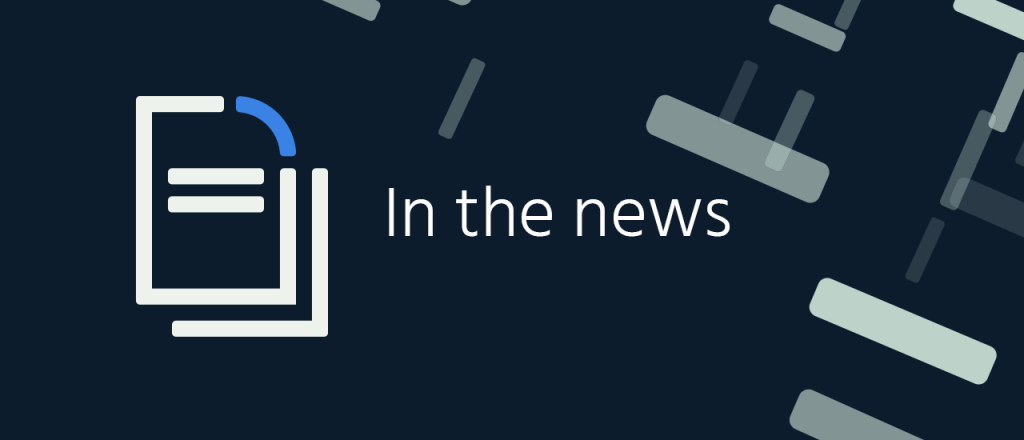
Another game of monopoly: Attorneys general from 38 U.S. states and territories have filed an antitrust lawsuit against Google, just days after 46 states and the U.S. Federal Trade Commission filed antitrust lawsuits against Facebook. The new lawsuit against Google is the third recent antitrust action against the company in recent weeks, CNet says. Ten states previously filed a lawsuit related to Google’s ad auctions, and the U.S. Department of Justice previously filed a lawsuit on Google’s browser deals with smartphone makers. The newest lawsuit targets Google’s search functionality, saying it delivered results that favored its own products over those of competitors.
Order from chaos: Meanwhile, the European Commission is threatening new regulation of big tech firms with rules to aim to “curb the hegemony of dominant multinationals and force them to be more transparent about how content is ranked, advertised and removed,” Euronews reports. Part of the goal is to allow European businesses to “freely and fairly compete online just as they do offline,” said Margrethe Vestager, executive vice president for a Europe Fit for the Digital Age.
The perimeter is breached: Hackers have gotten into the IT systems of several U.S. government agencies and Continue reading
Don’t Institutionalize the Internet
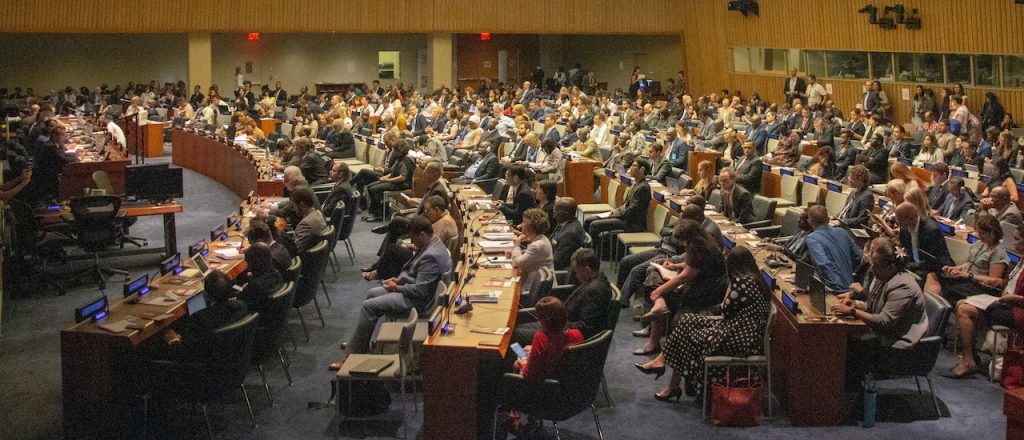
This opinion piece was originally published by the International Institute for Sustainable Development.
As the United Nations turned 75, UN Secretary-General Antonio Guterres opened the General Assembly by calling for a New Global Deal to ensure that political and economic systems deliver on critical global public goods. “Today, that is simply not happening,” he said. “We have huge gaps in governance structures and ethical frameworks. To close these gaps, we need to ensure that power, wealth and opportunities are broadly and fairly shared.”
At the Internet Society, we couldn’t agree more. But just what will this ‘New Global Deal’ and its governance structures look like with regards to digital cooperation? Let’s make sure that traditional, top-down governance of the Internet is not the answer.
The COVID-19 pandemic has underscored just how much we depend on the Internet and its distributed governance model. Because the Internet is a network of networks, its resilience is largely due to the planning, swift action, and cooperation of its interconnected participants.
And we are just at the beginning of the journey, with only 51% of the world’s population currently able to access the Internet. To get the remaining, unconnected half online, we need collaborative bottom-up Continue reading
How Strong Encryption Can Protect Survivors of Domestic Violence

For many of us in quarantine, our only privacy often comes in the form of digital communications. While we’re cooped up in our homes with other people, the online world can be a place to blow off steam, find distractions, and even seek refuge. This is especially true for survivors of domestic violence, sexual violence, stalking, and trafficking, who have historically relied on encrypted communications to find support and an escape.
This year has been particularly hard for survivors. Factor in spiking COVID-19 cases, the long slog of sheltering in place, economic uncertainty, and, in some regions, colder weather and shorter days – plus December and January holidays, which traditionally see an uptick in domestic violence incidents – and you have a perfect storm. Access to private online communication isn’t just a way to find support and escape, but a means of survival.
With the risk of domestic violence higher now, it is even more essential that we protect survivors’ privacy and safety online. In a pandemic, survivors may only be able to rely on digital communications for help, to limit in-person interactions.
This is why we worked with the National Network to End Domestic Violence to put together a Continue reading
International Community Joins Indian Policy and Cybersecurity Experts in Warning about the Dangers of Traceability

A growing group of international and local cybersecurity and policy experts are weighing in on proposed changes to Indian regulations that could jeopardize the safety of billions worldwide. By seeking to restrict WhatsApp and other popular messaging apps’ use of end-to-end encryption, the proposed policies pose a major threat to cybersecurity in India.
In Traceability and Cybersecurity, over 50 cybersecurity experts in Europe, North and Latin America, Africa, and the Asia-Pacific region agreed that amendments to the Information Technology (Intermediaries Guidelines) Rules under the Indian Information Technology Act proposed by the Indian Ministry of Electronics and Information Technology (MeiTY) will create many more problems than it seeks to solve.
Produced as a result of a global technical experts meeting series organized by the Internet Society in partnership with Medianama, the report notes that MeiTY’s proposal ignores sound advice: requiring intermediaries such as WhatsApp to enable the traceability of the content and data they handle is a major threat not only to the safety of users, but to India’s national security.
The report stresses that traceability would mean enabling third-party access to private communications, a move that undermines the end-to-end encryption that users everywhere, including government entities, rely on to Continue reading
EU Internet Society Chapters Call on European Commission to Follow the Path of Strong Encryption. Here’s Why You Should Too.
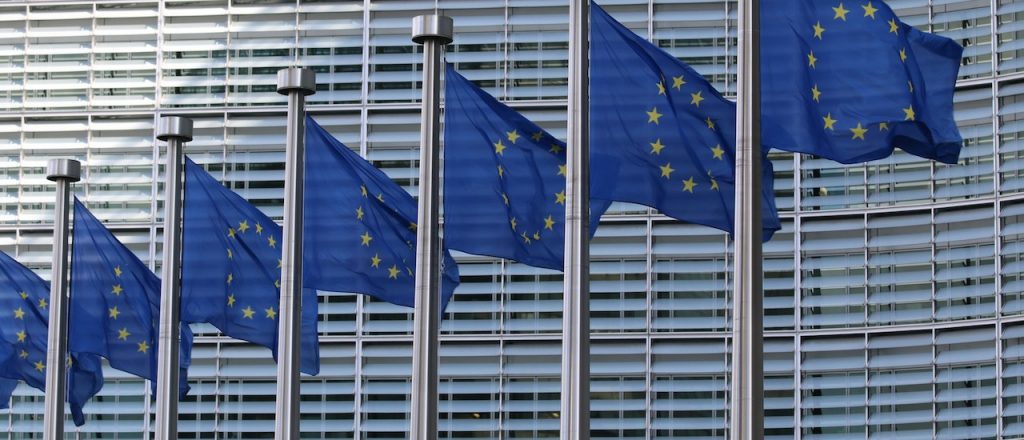
Internet Society Chapters in Europe are warning the European Commission that its recent plea for Member States to help find ways to access encrypted communications could make millions of citizens and countries more vulnerable to harm and terrorism online.
Representing digital security experts who share the Internet Society’s mission for a bigger and stronger Internet, several EU chapters issued statements expressing concern about the danger of the Commission’s request for backdoor access to encrypted communications in its Counter Terrorism Agenda. It was announced the same week the European Medicines Agency was victim to a major data breach when cyber attackers unlawfully accessed sensitive documents about COVID-19 vaccines.
End-to-end encryption is crucial to the security of European citizens, its economy, and the national security of its Member States. It is our strongest digital security tool online because it keeps data and communications private between the sender and receiver. Even the European Commission relies on Signal, an end-to-end encrypted messaging app, to secure its communications.
A recent report signed by over 50 leading cybersecurity experts shows how there is no way to give law enforcement access to end-to-end encrypted communications without putting all users at risk.
Encryption backdoors are dangerous because Continue reading
The Week in Internet News: Facebook Faces U.S. Antitrust Lawsuits
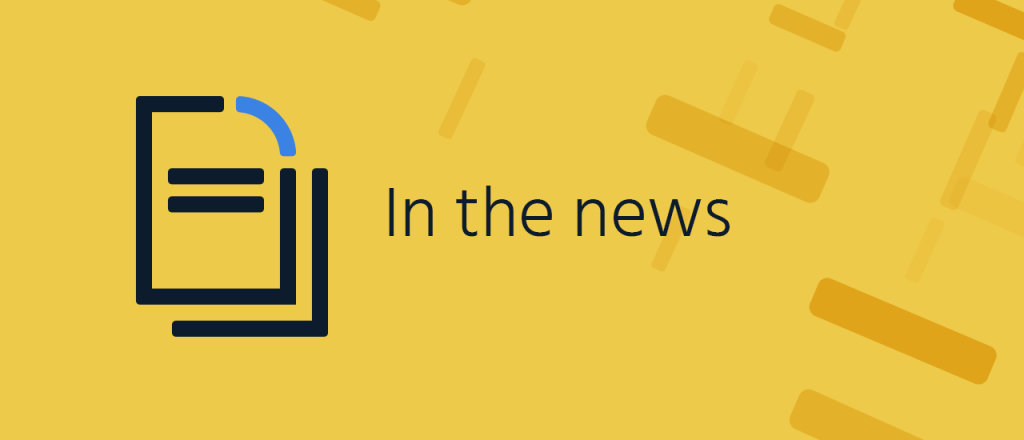
Do not pass go: The U.S. Federal Trade Commission and attorneys general from 46 states have filed antitrust lawsuits, charging the social media giant Facebook of expanding its monopoly position by acquiring potential rivals including WhatsApp and Instagram, The Hill reports. It’s possible that Facebook would be required to sell off those acquisitions. Facebook has noted that both acquisitions were approved by regulators at the time.
Get off my phone: The government of China has ordered several apps, including one from TripAdvisor, to overhaul their products in an alleged crackdown on pornography and other “improper” content, The Associated Press says. In the meantime, China’s National Cyberspace Administration ordered the removal of 105 apps including TripAdvisor from app stores. The agency said there were public complaints about obscene, pornographic, and violent information as well as fraud, gambling, and prostitution.
Cookie spies: The government of France’s data privacy agency has fined Google US$121 million and Amazon $42 million for breaking the country’s rules on tracking cookies, Reuters says. The Google fine was the largest ever from the French Commission Nationale de l’Informatique et des Libertés. The CNIL said the companies’ French websites didn’t seek the prior consent of visitors before advertising Continue reading
Partnering with Global Cyber Alliance on Open Standards, Routing Security, and More

Our work is strengthened, and our impact magnified, when we collaborate with partners to build a secure and trustworthy Internet for all. That’s why we’re proud to announce we’ve entered into a Memorandum of Understanding (MoU) with the Global Cyber Alliance (GCA) to work together on routing security, open Internet standards, and other areas of joint interest. The Global Cyber Alliance is an international, cross-sector effort dedicated to reducing cyber risk and improving our connected world.
This relationship is not new. The Internet Society and GCA have a long history of working together, from promoting email and Internet of Things (IoT) security to improving routing security, increasing deployment of open standards, and helping stakeholders participate meaningfully in the multistakeholder management of core Internet resources.
Both organizations have emphasized the importance of research, capacity building, and advocacy to develop key technologies and policies. This work helps promote the Internet, its resources, the need for vigilant user-enabled security, and the need for the Internet to remain open, inclusive, and an enabler of opportunities.
“We’re proud to extend and formalize our long-standing relationship with GCA to create real change for network operators and Internet users around the globe. By joining forces, we can promote enhanced Continue reading
Connecting Indigenous Communities: An Urgent Call for Inclusivity, Ownership, and Affordability
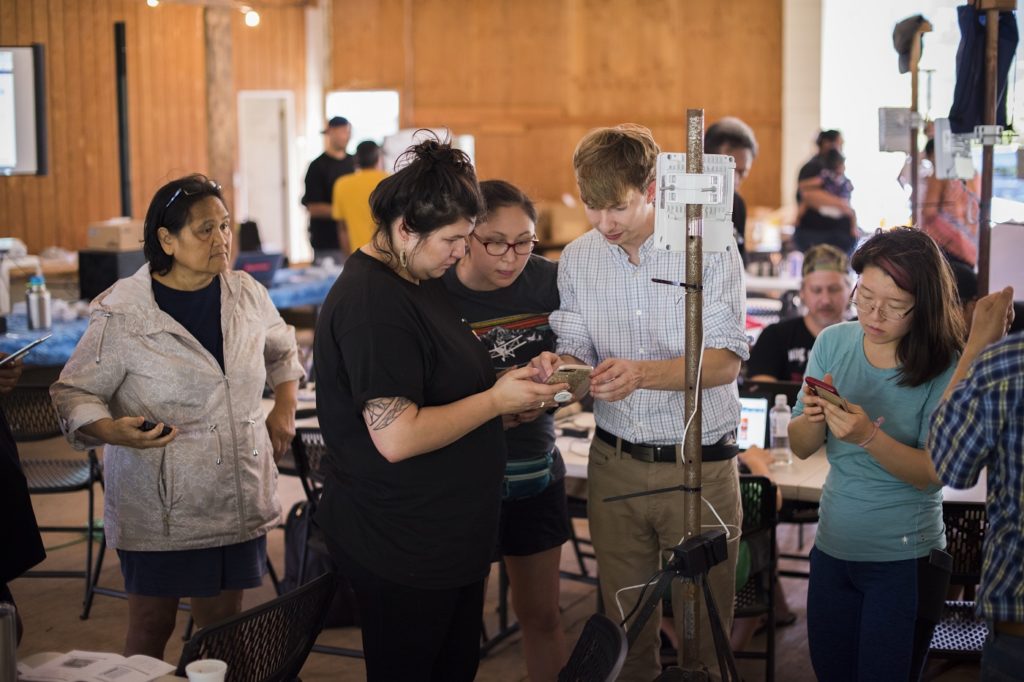
In October, we held the 2020 edition of Indigenous Connectivity Summit (ICS). Over the last four years, this summit has become a hallmark event for Indigenous network operators, leaders, community members, and others to come together to discuss the unique opportunities and challenges Indigenous communities face when campaigning for quality and affordable Internet access, and to build relationships with like-minded communities across North America.
In addition to the summit itself, for six weeks prior to the event participants in the ICS Policy and Advocacy training program led the development of a set of policy recommendations. These were then elaborated on, reviewed, and endorsed by summit participants, and they will now help both the Internet Society and the Indigenous communities who created them to advocate for policies that will help the United States and Canada move closer to digital equity.
We know that these recommendations really do make a difference. In 2019, our policy recommendations and organized advocacy efforts affected real change. The Federal Communications Commission in the U.S. was about to launch a spectrum auction and include a Tribal Priority Window so Indigenous communities could apply for the rights to the airwaves over their lands. The Tribal Priority Window Continue reading
Why We’re Helping to Measure the Internet

Here at the Internet Society, we’ve always known that the Internet can be an integral part of our existence. 2020 has shown us that we need stable, reliable, and available Internet for everyone, everywhere.
Much of our work – and the work of the organizations that facilitate the smooth functioning of the Internet – is focused on helping to increase the Internet’s reach, reliability, resilience, availability and security. One of the ways we can track whether these efforts are working is to collect and measure data on various facets of the Internet. This helps to build up a bigger picture of the Internet’s development over time and the resulting data can be used to inform and support policy, investment, and education.
Internet Insights
The Internet Society Insights platform was launched in December 2020 to provide a curated set of insights to help everyone gain deeper, data-driven insight into the Internet. We’re collating data from several trusted organizations – data partners – and will examine Internet trends, generate reports, and tell data-driven stories on how the Internet is evolving.
In this blog, we catch up with some of our data partners and prominent members of the Internet measurement community to find out more about why Continue reading
New Report Explores COVID-19’s Impact on the Internet in Afghanistan, Nepal, and Sri Lanka

During the COVID-19 pandemic, many have shifted their day-to-day activities to online. To sustain the spike in Internet traffic, fast and affordable Internet service are now more critical than ever.
Yet, Ookla Insights shows that Internet speed in Afghanistan, Nepal, and Sri Lanka has declined since the pandemic. A new Internet Society report, The Impact of the COVID-19 Pandemic on Internet Performance in Afghanistan, Nepal and Sri Lanka, examines the impact of this fall in the performance and quality of Internet services in these countries on online users.
Informed by an online survey, taken by two hundred Internet users – predominantly tech-savvy city dwellers with access to the Internet – the report reveals there is a decline in Internet performance in the three countries. It shows that though the performance decline frustrated online users, more are increasingly spending on high-speed Internet.
The research advocates for governments and Internet Service Providers (ISPs) to take advantage of the situation and accelerate efforts to increase network capacity and reliability to address the performance gaps.
Here are some highlights from The Impact of the COVID-19 Pandemic on Internet Performance in Afghanistan, Nepal and Sri Lanka.
Fall in Internet Performance
Around 50-80% of Continue reading
Introducing the 2021 Action Plan: Our Commitment to the Internet
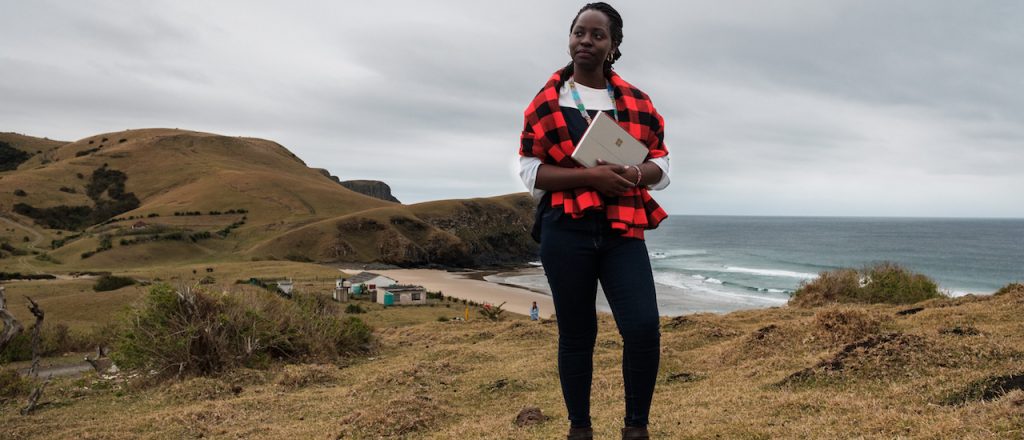
About a year ago we launched our 2020 Action Plan with great anticipation. We had a nice neat list of the most urgent Internet issues to tackle, and we would work as a whole community, coming together as people from all over to press for our vision: The Internet is for Everyone.
Then 2020 came and we learned how quickly plans can be upended.
Yet it has underscored that the Internet is not only a global technical infrastructure, but also a resource that enriches people’s lives. Our world – our ability to work, keep in touch, and share information – would be radically different without it. This gives our work a renewed sense of urgency.
The Internet needs a voice.
Today, nearly half the people of the world still have no access and far too many people live in places where the Internet is expensive, slow, and congested.
Today, too few Internet policy discussions are based on facts and measurements, while too many start from a mistaken understanding of how the Internet works. Far too many companies and politicians would rather their customers and voters be passive consumers than the active, powerful contributors they can be.
Today, too many governments Continue reading
The Week in Internet News: Two-Thirds of World’s School Children Lack Access
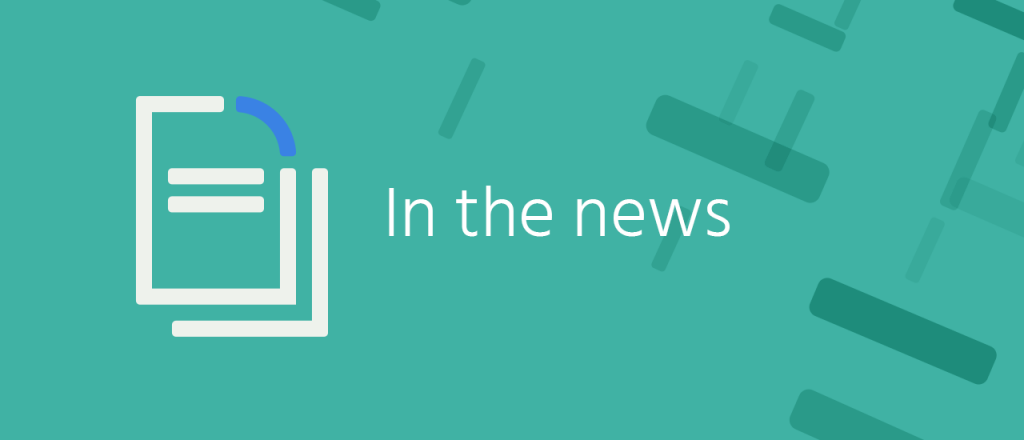
Homework canyon: Two-thirds of the school children across the globe don’t have Internet access, according to a new report, India Today says. The report from the United Nations Children’s Fund and the International Telecommunication Union says the lack of access is a major problem during the COVID-19 pandemic. “That so many children and young people have no internet at home is more than a digital gap, it is a digital canyon,” said UNICEF Chief Henrietta Fore. “Lacking connectivity prevents young people from competing in the modern economy.”
A quantum breakthrough: A Chinese research team has built a quantum computer capable of performing computations nearly 100 trillion times faster than the world’s most powerful supercomputer, The Independent reports. The Chinese feat comes about a year after a Google team passed the same milestone, although the Chinese quantum computer uses a different setup than Google’s.
Research by smartphone: Smartphone users in 17 countries, including the U.K., Australia, South Africa, and Germany, are donating excess smartphone computing time to the DreamLab app, which uses the computing power to research treatment for people suffering from long-term COVID-19 effects. The study is being run by Imperial College London and the Vodafone Foundation charity, Continue reading
New White Paper: Considerations for Mandating Open Interfaces

People all around the world depend on the Internet to live their lives and do their jobs. Behind the surface of applications, online services depend on “interoperability” – the ability of software to work together.
For instance, this is what allows you to send a document from the Outlook account on your iPhone to a friend’s Gmail, then edit the document on a Samsung tablet before saving it in Alibaba cloud, and finally posting it on Twitter using an application like Hootsuite.
But as we recognized in the 2019 Global Internet Report, trends of consolidation in the Internet economy, particularly at the application layer and in web services, have spurred concerns and public debates on the need to regulate Big Tech. Among the proposed measures by policymakers, academics, and other thought leaders across the world is for software services and systems to be legally required to provide interoperability or open interfaces. Today we release a new white paper on this topic, with the aim to support and add depth to the discussions about the key considerations involved.
The general sentiment among competition experts, policymakers and other stakeholders is that existing competition policy is not addressing the economic and societal Continue reading
MANRS Welcomes 500th Network Operator

Today, we are glad to share a milestone for the Mutually Agreed Norms for Routing Security (MANRS) initiative: the number of participants in the network operator program has reached 500.
By joining the community-driven initiative, these network operators, big and small, from around the world have taken specific, concrete actions to improve the resilience and security of the Internet’s inherently insecure routing infrastructure.
Systemic security issues about how traffic is routed on the Internet make it a relatively easy target for criminals. MANRS helps reduce the most common routing threats and increase efficiency and transparency among Internet service providers (ISPs) on peering relationships.
The growth of the network operator program – the oldest among three today – has been accelerating in recent years. Launched in 2014 with a group of nine operators, the number of participants in the program took four years to reach 100 in 2018 and has risen sharply in the last two years, with 156 joining in 2019 and 244 so far in 2020.
The 500 network operators manage 651 autonomous systems in total, as some of them manage multiple networks.
Meanwhile, the Internet Exchange Point (IXP) program, which we launched in 2018, now has 60 Continue reading
Insights Platform Now Live! A Deeper, Data-Driven View of the Internet

There are many people, projects, and organizations that are collecting data on various facets of the Internet, but there’s no single site that provides a curated set of insights.
To help address this gap, we’ve launched the Internet Society Insights platform to help everyone gain deeper, data-driven insight into the Internet.
One of the key deliverables of the Measuring the Internet project, we have spent the last few months building the Insights platform together with our valued development partner, Frontwerks AG.
Data and Focus Areas
We’re collating data from several trusted organizations – our data partners – and will examine Internet trends, generate reports, and tell data-driven stories about how the Internet is evolving. Insights launched with two initial focus areas, Internet Shutdowns and Enabling Technologies.
Work is continuing on three additional focus areas – Internet Resilience, the Internet Way of Networking, and Keeping Traffic Local. We aim to add data and insights on these focus areas throughout 2021 and beyond.
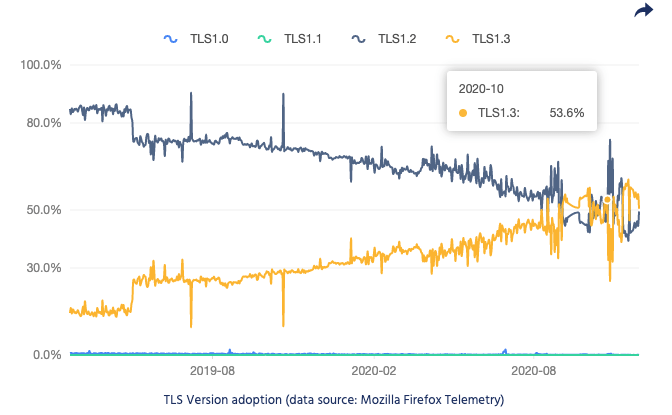
Use and Share
Everyone is encouraged to use and share the text, images, and charts presented on Insights under our creative commons license.
If you would like to submit an idea for a guest post for the Continue reading
Remembering Francis Kariuki: Africa’s Tweeting Chief

The African community networks community is sad to learn about the passing of one of its prolific members, Chief Francis Kariuki of Lanet-Umoja, a rural community in Nakuru County, Kenya. He died on on 21 October 2020 after a short illness.
Chief Kariuki was a renowned Kenyan administrator who pioneered the use of technology to foster development, justice, trust, peace, and inclusion in his community. His struggle for digital inclusion earned him several nicknames, including “The Digital Champion” and “The Tweeting Chief,” for being the first African local administrator to use social media channels to promote community development. His passion and drive for adopting technologies in service delivery at the local level earned him national and global recognition.
Chief Kariuki was a strong advocate for community networks in Africa. He successfully championed for a community network in Lanet-Umoja and worked with his community members to coordinate its installation, operation, and management.
Beyond Kenya, Chief Kariuki engaged in the Africa Summits on Community Networks, a platform where community network operators in Africa gather to foster learning, networking, knowledge, and experience sharing. At the Summits, Chief Kariuki shared key insights on community networks and inspired many young people to adopt digital Continue reading
The Week in Internet News: New York City Sued for Homework Gap

A virtual gap: Homeless advocates and legal groups have sued New York City for a lack of reliable Internet access in the city’s 27 homeless shelters, Reuters on WTVBam.com reports. Thousands of students living in the homeless shelters are struggling to keep up with virtual school during the COVID-19 pandemic, the plaintiffs say. The city has promised to install WiFi service in the shelters. New York City recently returned to virtual school after COVID-19 rates ticked up.
Repair it yourself: The European Parliament has voted to make it easier to repair electronic devices outside of the company that sold them, Euronews.com says. The legislation would allow independent repairs without hurting the value of the device during trade in, a move that’s a “major blow” to big device makers.
Device spying: The Singapore-based developer of smartphone application Muslim Pro, targeted at Muslim users, has denied allegations that it is selling the personal data to the U.S. military, The Straits Times reports. Developer Bitsmedia says it is immediately ending relationships with its data partners, however. Vice.com recently reported that the app was among several selling personal data to the U.S. military.
Facebook fined: The South Korean government Continue reading
Internet Society Continues Strong Support for the IETF’s Critical Work on Open Standards
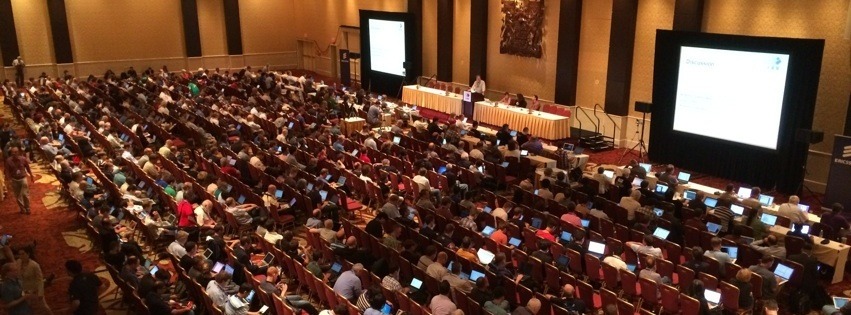
Open standards and the role they play are an important part of what makes the Internet the Internet. A fundamental building block of the Internet and everything it enables, open standards allow devices, services, and applications to work together across the interconnected networks that make up the Internet that we depend on every day.
In fact, every moment you are online, even just reading this blog post, you are relying on open standards such as DNS, HTTP, and TLS. They are a critical property of what we call the Internet Way of Networking.
Since its inception, the Internet Engineering Task Force (IETF) – a global community of thousands of engineers who are working each day to create and improve open standards to make the Internet work better – has been at the center of technical innovation for the global Internet. In addition to the standards themselves, the open processes and principles through which they are developed ensure the evolution of Internet technologies that meet the need of the growing number of devices and uses that empower people around the world to connect, share, learn, and more. This places the work of the IETF, and other groups focused on open Continue reading
Internet Society Foundation Awards over $1 Million in Digital Skills Development Grants

The Internet is for everyone – a critical lifeline that can uplift communities. But only if we go beyond Internet access and bridge the knowledge gap that continues to persist: the gap between those who have the knowledge and skills to use the Internet to empower themselves and their communities and those who don’t.
To address this divide, the Internet Society Foundation recently awarded over $1 million in digital skills development grants to eight innovative projects in Bangladesh, Colombia and Senegal. In its pilot year, the Strengthening Communities, Improving Lives and Livelihoods (SCILLS) grant programme aims to expand economic growth, improve health outcomes, and increase educational opportunities by supporting individuals and communities to more knowledgeably and skillfully use the Internet.
Learn more about these projects!

The Internet Society Foundation was established in 2019 to support the positive difference the Internet can make to people everywhere. The Foundation awards grants to Internet Society Chapters/Special Interest Groups (SIGs) as well as nonprofit organizations and individuals dedicated to providing meaningful access to an open, globally-connected, secure, and trustworthy Internet for everyone.
The post Internet Society Foundation Awards over $1 Million in Digital Skills Development Grants appeared first on Internet Society.